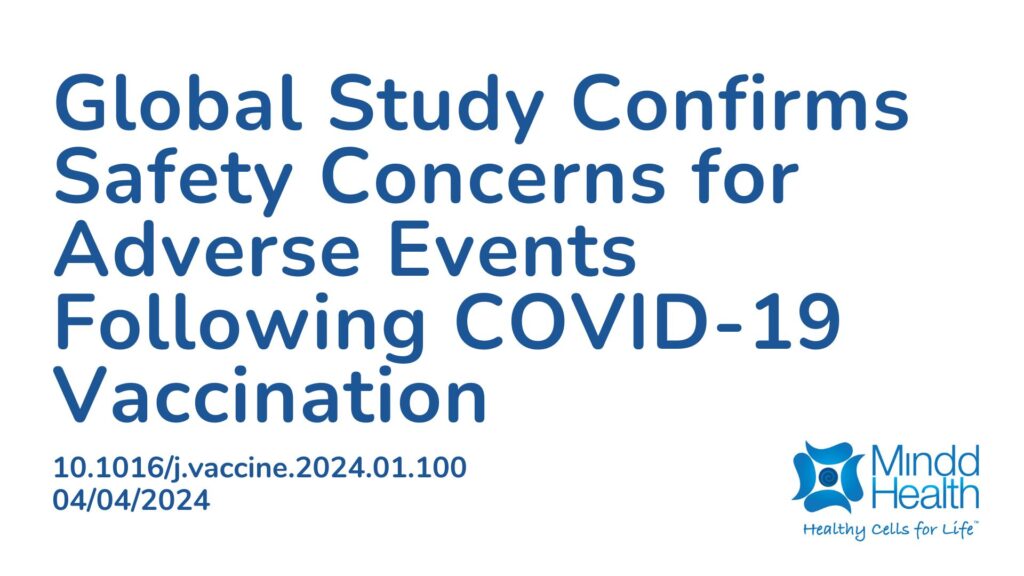Summary:
This study aimed to evaluate the risk of specific adverse events following COVID-19 vaccination across eight countries. This observational cohort study followed a standardized protocol to compare the rates of 13 adverse events related to neurological, hematological, and cardiac conditions. The analysis focused on adverse events occurring within 42 days after vaccination with mRNA and adenovirus-vector (ChAdOx1) vaccines. The study included 99,068,901 vaccinated individuals. The analysis revealed significant observed adverse events for several conditions, such as Guillain-Barré syndrome and cerebral venous sinus thrombosis, following the first dose of a vaccine. Acute disseminated encephalomyelitis also had a statistically significant prevalence after the first dose of an mRNA vaccine. Additionally, there were significant increases in myocarditis and pericarditis. This multi-country analysis confirmed known safety signals for myocarditis, pericarditis, Guillain-Barré syndrome, and cerebral venous sinus thrombosis associated with COVID-19 vaccines while also identifying additional potential safety signals that warrant further investigation.
Abstract:
Background: The Global COVID Vaccine Safety (GCoVS) Project, established in 2021 under the multinational Global Vaccine Data Network™ (GVDN®), facilitates comprehensive assessment of vaccine safety. This study aimed to evaluate the risk of adverse events of special interest (AESI) following COVID-19 vaccination from 10 sites across eight countries. Methods: Using a common protocol, this observational cohort study compared observed with expected rates of 13 selected AESI across neurological, haematological, and cardiac outcomes. Expected rates were obtained by participating sites using pre-COVID-19 vaccination healthcare data stratified by age and sex. Observed rates were reported from the same healthcare datasets since COVID-19 vaccination program rollout. AESI occurring up to 42 days following vaccination with mRNA (BNT162b2 and mRNA-1273) and adenovirus-vector (ChAdOx1) vaccines were included in the primary analysis. Risks were assessed using observed versus expected (OE) ratios with 95 % confidence intervals. Prioritised potential safety signals were those with lower bound of the 95 % confidence interval (LBCI) greater than 1.5. Results: Participants included 99,068,901 vaccinated individuals. In total, 183,559,462 doses of BNT162b2, 36,178,442 doses of mRNA-1273, and 23,093,399 doses of ChAdOx1 were administered across participating sites in the study period. Risk periods following homologous vaccination schedules contributed 23,168,335 person-years of follow-up. OE ratios with LBCI > 1.5 were observed for Guillain-Barré syndrome (2.49, 95 % CI: 2.15, 2.87) and cerebral venous sinus thrombosis (3.23, 95 % CI: 2.51, 4.09) following the first dose of ChAdOx1 vaccine. Acute disseminated encephalomyelitis showed an OE ratio of 3.78 (95 % CI: 1.52, 7.78) following the first dose of mRNA-1273 vaccine. The OE ratios for myocarditis and pericarditis following BNT162b2, mRNA-1273, and ChAdOx1 were significantly increased with LBCIs > 1.5. Conclusion: This multi-country analysis confirmed pre-established safety signals for myocarditis, pericarditis, Guillain-Barré syndrome, and cerebral venous sinus thrombosis. Other potential safety signals that require further investigation were identified.
Article Publication Date: 04/04/2024
DOI: 10.1016/j.vaccine.2024.01.100



